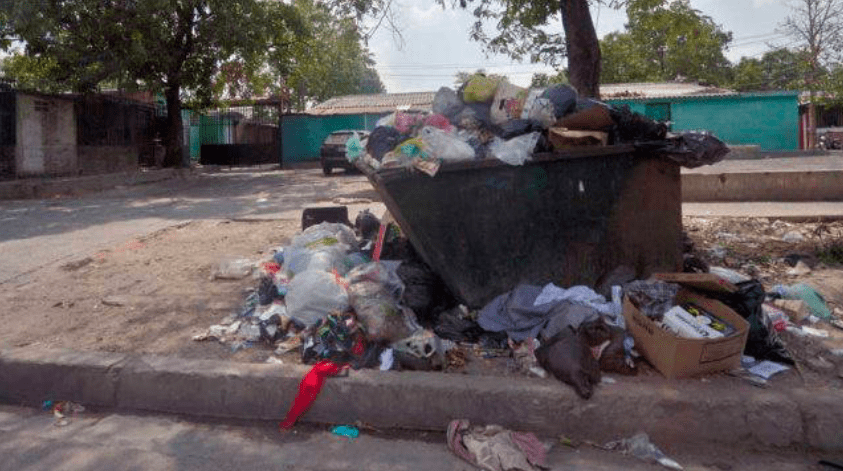Gang culture in El Salvador
By Martin Mowforth
In April this year (2019), it was reported in El Salvador that municipal employees who provide local services such as rubbish collection in the town of Apopa had stopped work because of threats from local gang members.
The threats began with two gang members who threatened the fee collectors from the almost 2,500 market stall holders, from which the municipality gains between $1,200 and $1,500 each week. Threats were later extended to burial services at the local cemetery where work also stopped meaning that three families had to bury their relatives in other municipalities. Also affected were rubbish collection services and one crucial bus service.
Local mayor, Santiago Zelaya, organised a group of volunteers to collect the rubbish with accompaniment by the National Civil Police. Initially only three police patrols were granted and other services could not be guaranteed by police protection. Mayor Zelaya said, “In view of this situation with reduced municipal ability, we request that the security forces support the progress and development that the municipality has made.”

It is believed that the gangs became short of money following the holiday period (December – February) and that the threats stemmed from their need to raise funds. Four gangs operate in Apopa (only 20 km from the capital San Salvador) where schoolchildren and students, as well as businesses, have to be extremely wary as they travel to and from their studies on account of the danger of approaches by gang members.
The Barrio 18 gang is thought to be responsible for the threats. The gang had an agreement with the previous mayor who is now languishing in jail along with several gang members.
Between the 1st January this year and the 25th February, fifteen assassinations were committed in Apopa, the same number as were committed during the whole of 2018.
On 30th January this year I participated in a visit to the Comunidad Romero, close to the town of Apopa. The visit was organised by the Centro de Intercambio y Solidaridad (CIS, Centre for Exchange and Solidarity), and our group discussed the problems of living there with a group of impressive young people who spend much of their time trying to avoid being approached and hassled by gang members. There is little work available and so young people who do not make the grade in school generally hang around on the streets where they are highly vulnerable to approaches by gang members.
The main street in Distrito Italia where the community is located, is run by the Barrio 18 gang on one side and by the Mara Salvatrucha on the other. Young people on their way to school or to get the bus to go into Apopa or San Salvador are particularly vulnerable to these approaches, and so many of the young people from Comunidad Romero have to go the long way round to avoid such contact.
Given the lack of employment opportunities and the lack of alternative forms of development, it is unsurprising that so many young adults join the migrant caravans in search of a future.
Sources:
- La Prensa Gráfica, 14 April 2019, ‘Amenaza de pandilla en Apopa limita servicios municipales’ / ‘Gang threats in Apopa restrict municipal services’.
- Daniel Torres (El Salvador Day), 14 April 2019, ‘Pandilleros no permiten que se recoja basura en Apopa’ / ‘Gang members stop waste collection in Apopa’.
- Personal notes by Martin Mowforth from visit to Comunidad Romero, 30 January 2019.